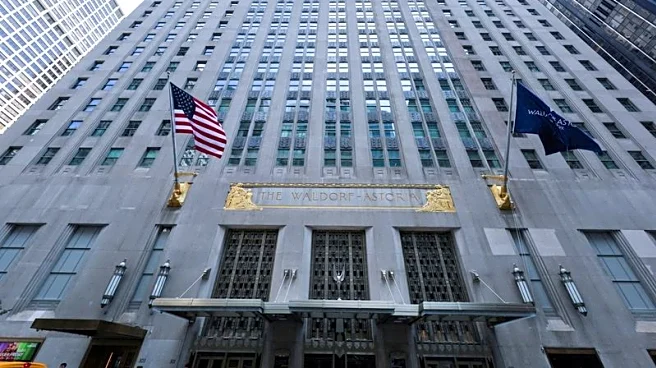What's Happening?
The increasing use of AI-generated content in education is raising concerns about its impact on student creativity. Educators, like English teacher Thomas David Moore, describe AI-generated texts as lacking authenticity and creativity, comparing them to artificial experiences. Stanford professor Jane Riskin criticizes AI essays as featureless, while Tulane professor Stan Oklobdzija likens using AI for writing to having robots lift weights for you. Research from MIT Media Lab supports these concerns, indicating that AI tools can diminish neural connectivity associated with learning, posing an existential threat to education.
Why It's Important?
The reliance on AI-generated content in education could undermine the development of critical thinking and creativity among students. As AI tools become more prevalent, students may miss out on the mental strengthening that comes from traditional writing and learning processes. This shift could have long-term implications for the quality of education and the ability of students to engage in creative and critical thinking. Educators are challenged to find ways to assess student learning that emphasize human thought and creativity, rather than relying on AI-generated outputs.
What's Next?
Educators and curriculum leaders are urged to reconsider assessment methods to account for the influence of AI. Alternative assessments, such as in-class assignments and oral presentations, may be necessary to evaluate student learning authentically. Additionally, there is a need to critically question the role of AI in classrooms and resist the hype surrounding its capabilities. Teachers must focus on fostering environments that prioritize human creativity and thought, ensuring that students develop the skills necessary for genuine learning and expression.
Beyond the Headlines
The fascination with AI tools reflects deeper aspects of human nature, as explored by philosopher Shannon Vallor. The allure of AI may be linked to a desire for convenience and efficiency, but it also raises ethical questions about the role of technology in education. As AI continues to evolve, educators must navigate the balance between leveraging technology and preserving the integrity of human creativity. This challenge requires a thoughtful approach to integrating AI into educational practices, ensuring that it enhances rather than diminishes the learning experience.










